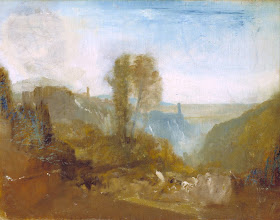Odd not because they need the time. Odd because of the claim that they want to think about it. Personally, I find that if I have to confront a dilemma, what I really need is the time not to think about it. Asking to ‘sleep on it’ is much more sensible, expressing the need to think about anything other than the matter in hand or, indeed, to think of nothing at all.
After a period of non-thought, you come back to the question and by some strange process of osmosis, ideas have sneaked into your mind and, voilà, the way forward, so uncertain before, suddenly becomes clear.
I find this kind of approach even works for blog posts. I write them, I leave them, I come back to them and something a lot better emerges.
Please resist the temptation to come back with comments along the lines of ‘you mean they were even worse before?’ I’m a sensitive soul, easily upset.
Non-thought leading to a decision isn’t of course the way everyone works. For some people it’s just a wonderful way to avoid taking any decision at all. One of the most attractive aspects of the place I work now is that it’s got me away from the kind of people who retreat into their offices and spend hours and days testing hypotheses, collecting huge amounts of data and pushing them around, until the time for an urgent decision has gone by.
They remind me of the four-stage Foreign Office strategy as outlined in Yes, Prime Minister:
In stage one we say nothing is going to happen.
Stage two, we say something may be about to happen, but we should do
nothing about it.
In stage three, we say that maybe we should do something about it, but
there's nothing we can do.
Stage four, we say maybe there was something we could have done, but it's
too late now.
In the kind business I’m delighted to have got away from, the equivalent is:
- put off the decision to a following meeting
- launch a project to collect all the relevant information over the next few months
- refer the matter to a group of junior employees knowing that they’ll only come back with a request for a decision, or
- spend a small fortune on a consultant who will recommend adoption of the proposal, but with the proviso that it might be wiser not to.
Still, on one thing I have absolutely no doubt. It can often be useful to take time over a tricky decision. But not in order to think about it, rather to think about pretty well anything else.
Totally unrelated postscript. We went to see the ‘Turner in the light of Claude’ exhibition at the National Gallery last night.
There seem to be lots of this kind of show on at the moment: Picasso and his friends, Francis Bacon’s debt to Velazquez, Dante Gabriele Rossetti’s influence on Raphael (I invented that one).
It was quite an eye-opener to see Turner canvasses with Claude’s. Not that Turner ever hid his debt: in fact, he asked the National to hang some of his canvasses alongside the Claudes that shaped them. It was still striking to see how closely the compositions mirrored each other. What's more, Turner is all about light, and you could see how he learned from Claude to make the sun a main feature of his painting, its light washing across the landscape to give patches of brightness and dark, its reflection splintering off water.
But I have to say that none of the pictures spoke to me so much as when Turner moved beyond Claude and started to have the light invade the picture and flood it, practically crushing the scene, making the details vanish into haze instead of illuminating them. Then you get the real, distinctive Turner touch, the one that makes me look twice and wonder.
Much more interesting when the pupil at last overtakes the master. Or, perhaps I should say, at least moves away from him.
 |
| Claude's view of the Roman Campagna |
 |
| Turner's light flooding the Cascatelle at Tivoli |
No comments:
Post a Comment